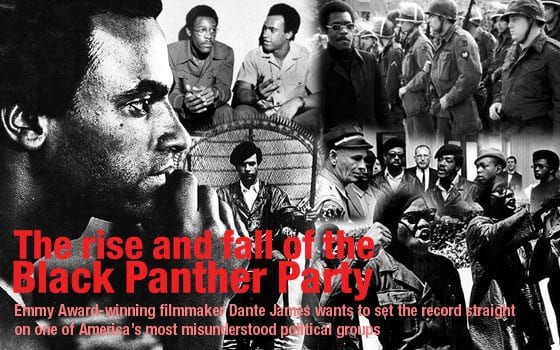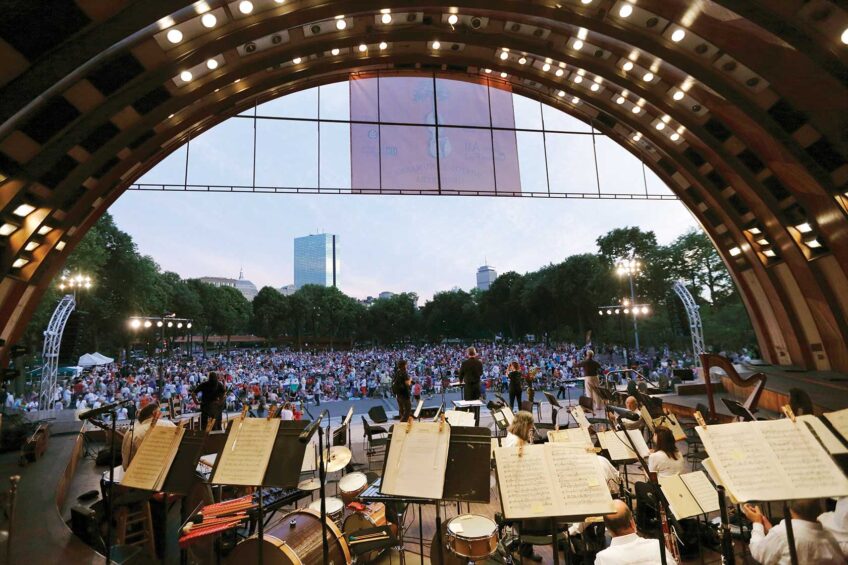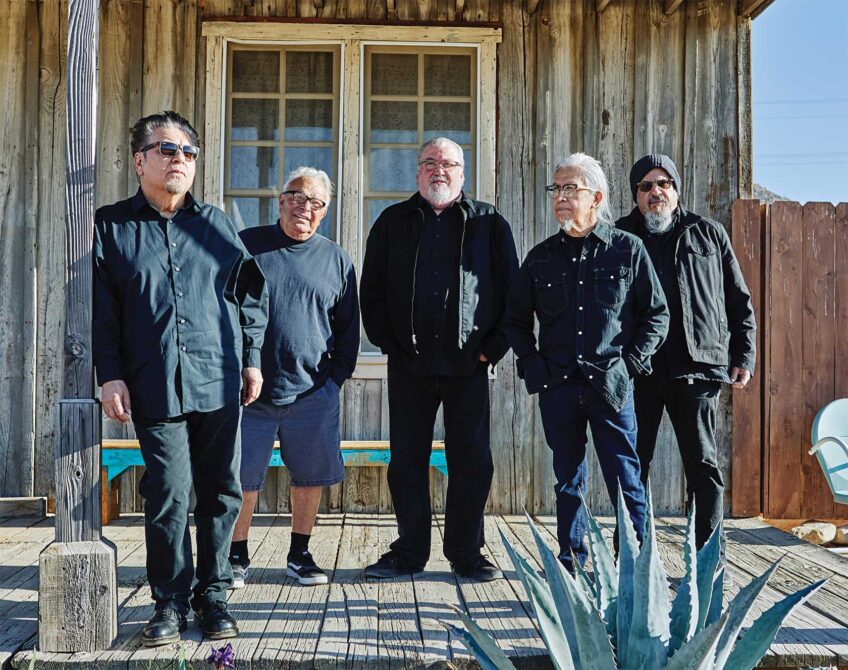

Dante James is an Emmy Award-winning independent filmmaker who has produced and directed critically acclaimed documentaries and dramatic films. He is also the assistant director of the African Cultural Center at North Carolina State University (NCSU).
Prior to joining the NCSU faculty, he was an artist in residence and instructor at Duke University. In 2006, he won a National Emmy for his work as series producer of the well-received PBS series, “Slavery and the Making of America.”
James’ most recent offering, “Harlem in Montmartre: A Paris Jazz Story,” was awarded Best Documentary at the 2010 Pan African International Film Festival in Cannes, France.
In 2008 he wrote, produced and directed “The Doll,” an adaptation of a classic short story by Charles W. Chesnutt. That picture received the Best Dramatic Short Film Award at that year’s Hollywood Black Film Festival.
Earlier in his career, Dante executive produced the PBS series, “This Far by Faith” for Blackside Films in Boston. He was also honored with the DuPont Columbia Silver Baton for his work at Blackside.
James has a Bachelor of Arts degree from Grand Valley State University and a Master of Arts in Liberal Studies from Duke University. In 2008 he was awarded an honorary Ph.D., a Doctorate of Humane Letters by Grand Valley State University.
During the summer of 2010 he served as a guest lecturer at the University of Cape Town in South Africa. He plans to return to Cape Town to make a film with a black South African resident of the Khayelitsha Township.
What interested you in doing a documentary about Huey Newton?
As a young person, I was interested in the Black Panther Party and their efforts to serve the needs of the community while also having the courage to confront oppressive, exploitative, forces in the community.
That interest grew as I got older and, as you are aware, all of my films explore some aspect of the African American experience. So, a film on Huey P. Newton and the Black Panther Party is an opportunity to grow intellectually while also exploring an often misrepresented movement.
Do you think that the Panthers have been slighted by history because J. Edgar Hoover was so successful at destroying the party?
I think the misrepresentations of the Black Panther Party are certainly connected to J. Edgar Hoover and his unrelenting efforts to destroy the party. For about 10 years, Hoover illegally used the power of the federal government along with black informants to create dissension within the party and to present a negative image of the party to the general public.
Additionally, in concert with local police officials, Hoover used brutal force in his effort to destroy the Black Panther Party. The images and accounts of these efforts have misrepresented the Black Panther Party movement.
Historically, and even today, external forces including the government, the mainstream corporate media and academics have defined the Black Panther Party. This film will be the first to tell the story of the Black Panthers from inside the party. Black Panther Party members will define themselves and their movement.
How did you get David Hilliard to participate in the project?
Actually, David, who was Huey P. Newton’s childhood friend, a founding member of the party and its chief of staff, approached me. David also led the party during the time that Huey and Bobby Seale were incarcerated.
David and I spent several months talking about the film in terms of a conceptual framework at the same time that I conducted my own research. During these conversations, David would tell me these incredible stories about Huey’s vision for the party, the inner workings of the party, the mistakes they made, the successful maneuvers and the pain and agony of the murder of party members.
One of the main misconceptions of the party is grounded in the concept of armed struggle. While there were factions of the party who pushed an armed struggle agenda, that was not Huey’s vision. This was a leading source of tension within the party and it will be a major story focus of the film.
What about Bobby Seale, who I think of as the only other surviving founder of the Black Panthers?
I haven’t had a chance to speak to Bobby Seale yet. I have been working very closely with David Hilliard and I’m thrilled to have the support of Fredrika Newton, Huey’s widow and the president of The Dr. Huey P. Newton Foundation.
Of course, we want to and will speak to Bobby Seale, but the story of the Black Panther Party, in essence, is the story of Huey Newton. Huey had his own personal issues. He was complex, he was brilliant, and he was a student of history, politics and economic theory. Clearly, Huey P. Newton was the leader and standard bearer of the Black Panther Party.
What sort of archival footage will you have access to?
David was very forward thinking in terms of the legacy of the Black Panther Party. He has every issue of the newspaper, hours of unseen film footage and unheard audio recordings, documents and correspondence. These materials will facilitate our efforts to tell the story of Huey Newton and the Black Panthers from inside the party.
Will you also be looking at documents made available by the Freedom of Information Act (FOIA) proving the U.S. government’s infiltration of and war on the Panthers via the FBI’s Counter Intelligence Program (COINTELPRO)?
Another major storyline is the violence and oppression of the Black Panther Party under the auspices of the COINTELPRO. David Hilliard actually led the party during the most violent assaults by the FBI because both Huey Newton and Bobby Seale were incarcerated. David obviously has first-hand knowledge of this time period and his knowledge will be supplemented with Freedom of Information Act documents.
How many original Panthers are still around to interview?
I’m not certain how many original Panthers are still around, but David’s brother, June Hilliard, and Huey’s older brother, Melvin Newton, will be essential to the storytelling. Additional contributors include, but are not limited to, Elaine Brown, who led the BPP during Huey Newton’s exile, and Fredrika Newton.
Other key people are Che Billy Brooks, minister of education of the Chicago chapter; Larry Little, the leader of the Wilmington, N.C., chapter; and Kumasi Simmons, the foremost authority on George Jackson and the prison movement.
Do you know what, besides Huey, will be the primary focus of the film?
Another major theme will be the efforts of the Black Panther Party to serve the needs of the community. The philosophy of the Black Panther Party, as defined in the 10-Point Program, addressed the basic needs and desires of the community. It was bold and decades ahead of its time.
The 10-Point Program demanded that America serve the needs of the people. If you look at the status of black and poor Americans, it is obvious that the demands of the party are still unfilled. Therefore, this history and the story of the Black Panther Party remain very relevant to contemporary society.
Will you be discussing the New Black Panthers? When I interviewed Bobby Seale, he was furious that they’ve appropriated the name, because he sees them as having a totally different agenda.
David Hilliard and the Huey P. Newton Foundation have no connection to the New Black Panthers.
What do you want people to take away from the movie?
We want young people to know that Huey P. Newton and the Black Panthers were very young. They were in their 20s but they had the courage to confront oppressive forces and struggle to make America live up to its promise of equality and justice for all its citizens.
We want young people to know that it is now their responsibility to carry the struggle forward. And, of course, I think it is paramount that the Black Panther Party be afforded an opportunity to define themselves and their movement outside of the mainstream, corporate-controlled media.
How long will it take you to complete the project?
Once we secure production financing, it will take 12-14 months to make the film






